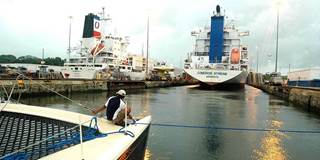The theme of this year’s World Economic Forum in Davos, Switzerland, is “Responsible and Responsive Leadership.” But one possible reading of Donald Trump’s victory in the US presidential election is that voters these days care less about responsibility than “authenticity.”
COLOMBO – The theme of this year’s World Economic Forum in Davos, Switzerland, is “Responsible and Responsive Leadership.” But one possible reading of Donald Trump’s victory in the United States presidential election is that voters these days care less about responsibility than “authenticity.” Voters welcomed Trump’s reckless comments on sensitive issues because he was speaking his mind and being true to himself. Ordinary politicians, by always saying the “right” thing, seem packaged and staged.
But does authenticity need to involve recklessness? Alternatively, can “politically correct” behavior be a form of recklessness, to the extent that it evades difficult issues and focuses on what is easier to justify rather than what is right? Does authenticity involve facing the anxiety and anguish that Jean-Paul Sartre thought was the inevitable companion of freedom and responsibility?
These are questions for economic policymakers as much as for anyone else. Policymakers approach their task in two fundamentally different ways. One paradigm regards economic policies as a set of universal best practices. The more you adopt, the more they (investors) will come.

COLOMBO – The theme of this year’s World Economic Forum in Davos, Switzerland, is “Responsible and Responsive Leadership.” But one possible reading of Donald Trump’s victory in the United States presidential election is that voters these days care less about responsibility than “authenticity.” Voters welcomed Trump’s reckless comments on sensitive issues because he was speaking his mind and being true to himself. Ordinary politicians, by always saying the “right” thing, seem packaged and staged.
But does authenticity need to involve recklessness? Alternatively, can “politically correct” behavior be a form of recklessness, to the extent that it evades difficult issues and focuses on what is easier to justify rather than what is right? Does authenticity involve facing the anxiety and anguish that Jean-Paul Sartre thought was the inevitable companion of freedom and responsibility?
These are questions for economic policymakers as much as for anyone else. Policymakers approach their task in two fundamentally different ways. One paradigm regards economic policies as a set of universal best practices. The more you adopt, the more they (investors) will come.